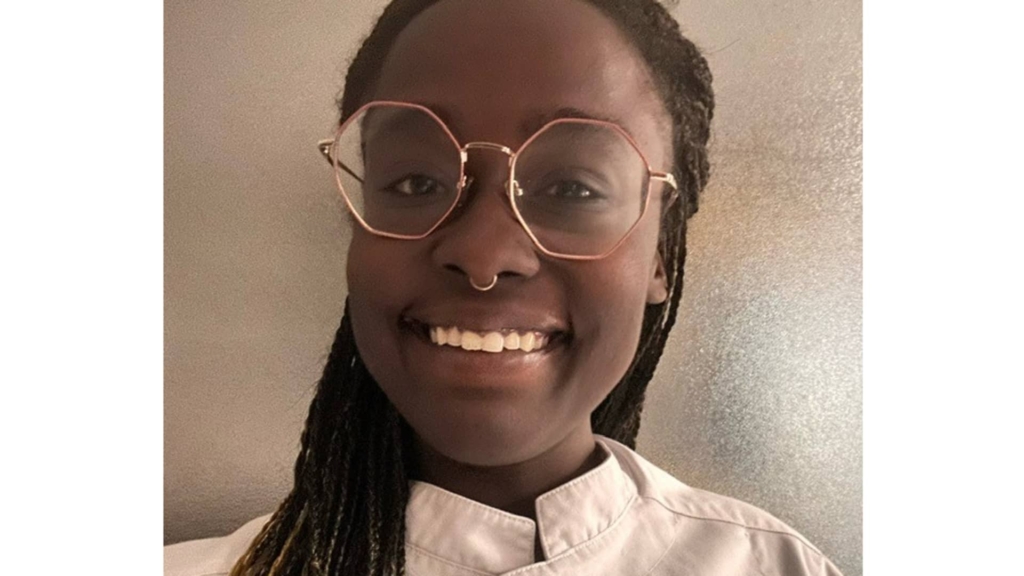
Valerie Valcourt is living what some might consider the dream life: The 34-year-old former executive assistant quit her tech job over a year ago and now makes pastries in the South of France.
She recently went viral on TikTok for posting her experience of changing careers in her 30s: “Don’t let society try to trick you into thinking that it’s too late to start over or that you have to choose one set path,” she says in the video.
Valcourt lives by that mentality: Back in 2020, Valcourt was working her Big Tech corporate job in Seattle earning just over $100,000 after bonuses and equity but feeling “at a really low place” and wondering: “What would I want to be doing that would bring me joy?”
She’d always wanted to go to culinary school abroad and, after some online research, submitted her application to a French school on a whim. She got accepted in October 2020 and resigned from her day job soon after. But, she now admits, she wasn’t ready to make such a big life change.
“I ended up kind of falling on my face,” Valcourt tells CNBC Make It. “I didn’t have enough saved, and I didn’t realize the mental toll it would take to quit my job at the time.” So, she put culinary school on the backburner and rejoined the corporate world to sort things out.
More research, savings and a second attempt
Valcourt realized she would need to double her savings to roughly $20,000 to live off of while in school. To accelerate her savings, she took on a new executive assistant job and moved from Seattle to New York and finally to Connecticut to live with her family.
By the spring of 2022, she was feeling renewed.
She spent more time researching schools that would help her learn French as well as cooking techniques through an internship placement. She landed on a school in the south of France called Gastronomicom and reached out to a former student on Instagram to get a feel for the experience.
Tuition ranges from 4,300 euros ($4,666) for two months of just cooking lessons, or up to 18,700 euros ($20,290) for a year-long program with cooking lessons, pastry lessons, French lessons and an internship.
Valcourt says she didn’t need any prior culinary knowledge to enroll — “they just want people who are enthusiastic.”
She officially moved to France in January 2023 and began her accelerated three-month program of intensive pastry courses and French lessons, followed by a four-month internship. All in, she paid about 10,000 euros ($10,850) for tuition and another 1,800 euros ($1,953) for housing.
A future in France
Valcourt sailed through classes. Her first internship got extended to six months, and then she got hired to work full time as a pastry assistant at the restaurant Maison Chabran in Pont-de-l’Isere, France.
She earns roughly 20,000 euros ($21,705) a year, and her employer covers her seasonal housing (at least until April, when a new intern class starts). When she eventually finds her own apartment, Valcourt expects to pay roughly 300 euros ($326) per month for a studio or 500 euros ($543) per month for a 1-bedroom apartment.
Valcourt says the best things about her pastry job are learning new skills and working with her hands. Looking back, she’s grateful her first try at culinary school didn’t pan out. She needed more time to build her mental confidence, “because being in a kitchen is no joke.”
While she and her French colleagues work hard, Valcourt says she’s surprised by their mentality around rest.
“The French are very adamant about not working overtime,” she says. “When it’s time to stop, it’s time to stop. Go home and rest.”
Valcourt says she doesn’t have a five-year plan but generally wants to learn as many cooking and pastry techniques as possible, and see as much of France while she can. Her next goal: saving up for a car to drive around the countryside.
She feels fortunate her school and employers have helped her with the necessary visas to stay in the country, and she currently has a permanent employment contract with her company, which employs many foreign and seasonal workers.
Her advice to daydreaming career-changers
These days, Valcourt often hears from other corporate U.S. workers who want to quit and start a new career. Her best advice to them: Explore what you like to do day-to-day, and separate what you want to do as a hobby versus working for yourself or under someone else as a profession.
Consider, what is it you like about your current line of work? What about your previous work? What do you not like about work? Can you find a new career that doesn’t include that aspect, or will you have to work through incompatibilities?
Finally, she adds, don’t put too much pressure on yourself to have everything figured out. One big help is having a good support system of friends, family and colleagues when things get tough.
“If you’re in that kind of place where you’re trying to figure out what you want to do, take it as an opportunity to be able to explore,” Valcourt says. “Don’t see it as something that’s negative. Looking at it with curiosity, being open to what excites you and focusing on that is a really good way to start.”
Conversions from euros to USD were done using the OANDA conversion rate of 1 euro to 1.09 USD on March 5, 2024. All amounts are rounded to the nearest dollar.
Want to land your dream job in 2024? Take CNBC’s new online course How to Ace Your Job Interview to learn what hiring managers are really looking for, body language techniques, what to say and not to say, and the best way to talk about pay.







